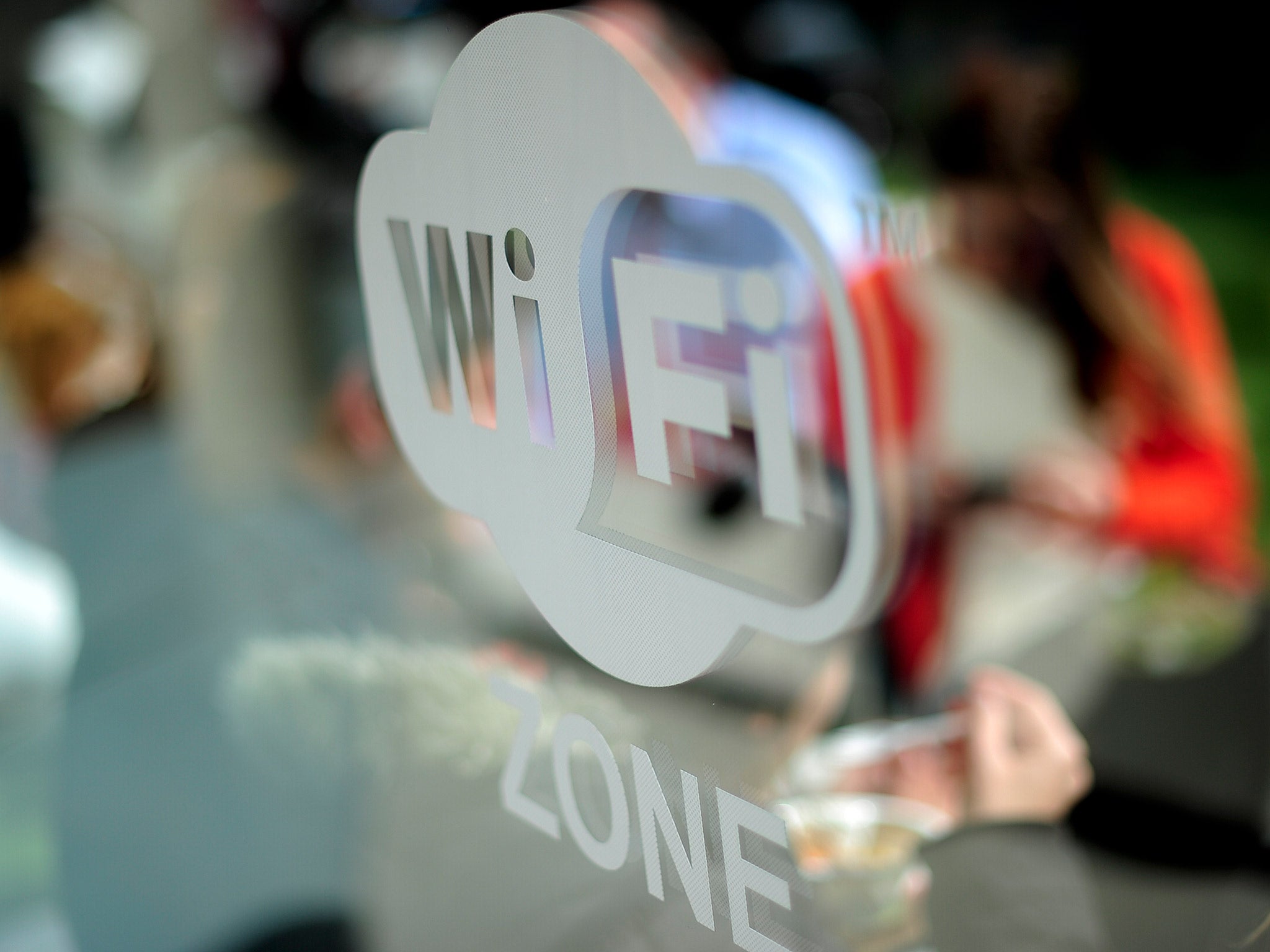Using a hotel's free wifi hotspot? It could end up costing you a fortune
You may be gently lobbing completely unencrypted information into someone else's hands, says Rhodri Marsden

A disgruntled hotel guest made his feelings clear on social media when his internet connection kept dropping. "Dear hotels all around the world," read the succinctly worded tweet, "sort your f**king wifi out." It's a complaint that many of us can identify with, but it's a bit like moaning about drab décor after wandering into the lions' enclosure at the zoo.
"Never, ever use hotel wifi," came a reply from another Twitter user, who admitted that this was the "boring security response". But he was right. For years we've been logging on to open wifi hotspots in hotels, airports and cafés in the hope of grabbing some delicious free data, happily inputting our details into some kind of login screen (a "captive portal") and enjoying the temporary internet access we've been granted. But if you haven't entered a password to connect to the access point in the first place, you may be gently lobbing completely unencrypted information into someone else's hands. Establishing that initial wifi connection can turn us into sitting ducks – and if you're in a posh hotel, the more sumptuous a potential target you are for hackers. Worse still, you'd probably never know that your information is being siphoned off.
A timely reminder of the dangers of open wifi points came this week, when a journalist from USA Today, Steven Petrow, recounted the story of how he was stopped by a fellow traveller after an American Airlines flight and told that he was one of many passengers who'd unwittingly revealed personal information by using the onboard wifi. The guy then proceeded to read to Petrow the contents of some of his personal emails. "That's why this story is so important to everyone," he said, before disappearing out of sight. "It's about everyone's privacy."
The vice-president of the company that provided the wifi service for that flight, Gogo Wireless, later acknowledged to Petrow that its hotspots were the same as any other open wifi hotspots, and cautioned "against accessing sensitive materials" during the flight.
But caution is not the predominant emotion when people are looking for a way to access the internet. Impatience and anticipation ride roughshod over caution, and hackers know it. On a flight, said hackers then have endless hours to calmly explore the vulnerabilities of hundreds of devices from a comfortable airline seat. Well, comfortable-ish.
Issues of online privacy tend to sit awkwardly in a grey area between personal safety and paranoia, but while each of us has very different attitudes towards risk, the total lack of security in place across your average open wifi hotspot is so obvious that you wonder why operating systems don't replace their cute little fan symbols with skulls and crossbones – or at the very least a warning sign.
While you're never completely safe in a digital world, you don't have to be the low-hanging fruit, and those who unquestioningly jump onto open wifi points are the lowest-hanging fruit of all. If you're going to use them, tighten your firewalls, lock down your sharing settings and, if possible, use a VPN (virtual private network) service – decent ones cost as little as £3 a month. If you have the option to use your mobile phone as a wifi hotspot, and you've got the data allowance, use that instead. That option won't be open to you on a flight, of course, but hey, you're on an aeroplane. Marvel at the wonder of modern air travel, give your brain a rest and resist the lure of the internet. Just for a few hours.
Join our commenting forum
Join thought-provoking conversations, follow other Independent readers and see their replies
Comments
Bookmark popover
Removed from bookmarks